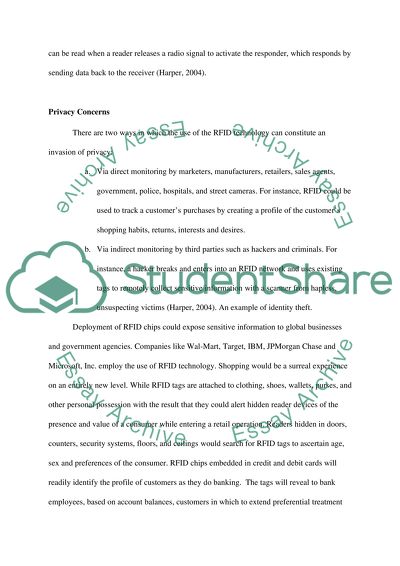Cite this document
(“RFID: Brave New World of Technology Essay Example | Topics and Well Written Essays - 2000 words”, n.d.)
RFID: Brave New World of Technology Essay Example | Topics and Well Written Essays - 2000 words. Retrieved from https://studentshare.org/technology/1534372-rfid-brave-new-world-of-technology
RFID: Brave New World of Technology Essay Example | Topics and Well Written Essays - 2000 words. Retrieved from https://studentshare.org/technology/1534372-rfid-brave-new-world-of-technology
(RFID: Brave New World of Technology Essay Example | Topics and Well Written Essays - 2000 Words)
RFID: Brave New World of Technology Essay Example | Topics and Well Written Essays - 2000 Words. https://studentshare.org/technology/1534372-rfid-brave-new-world-of-technology.
RFID: Brave New World of Technology Essay Example | Topics and Well Written Essays - 2000 Words. https://studentshare.org/technology/1534372-rfid-brave-new-world-of-technology.
“RFID: Brave New World of Technology Essay Example | Topics and Well Written Essays - 2000 Words”, n.d. https://studentshare.org/technology/1534372-rfid-brave-new-world-of-technology.


